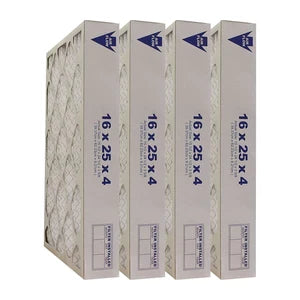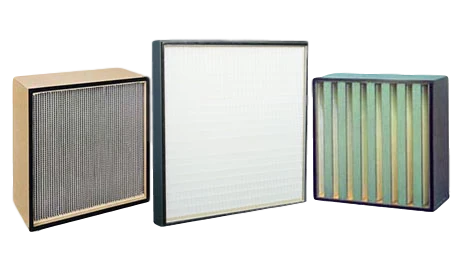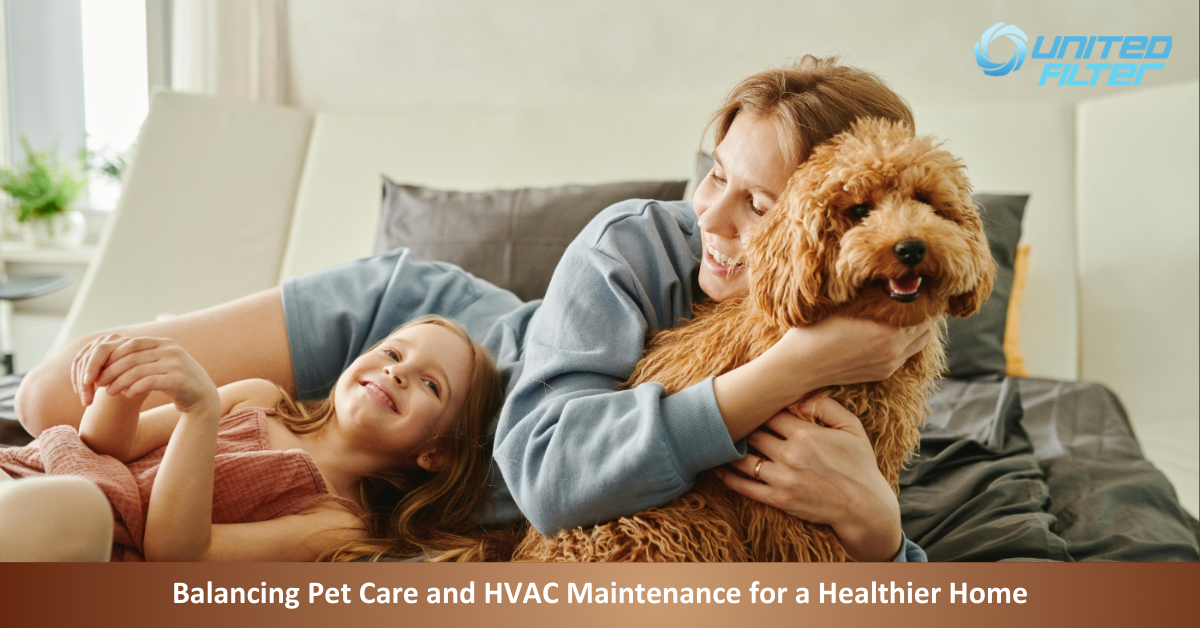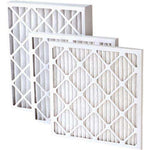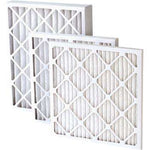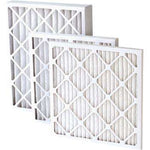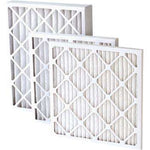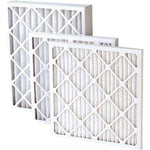Vous avez pas d'articles dans votre panier.
As pet owners, we share our homes with our beloved furry friends, who bring endless joy, companionship, and even a sense of purpose to our lives. However, the joy of having pets also comes with the responsibility of ensuring that our indoor environment is as healthy as possible. This is particularly important for maintaining the health and well-being of both our pets and ourselves. Indoor air quality is a critical aspect of this responsibility, and it is significantly influenced by the presence of our pets.
The Impact of Pets on Indoor Health
Pets can affect indoor air quality in several ways. They shed fur and dander, which can become airborne and circulate throughout your home. This can lead to the buildup of allergens, which can exacerbate respiratory issues for both humans and pets. Additionally, pets can bring in dirt, pollen, and other outdoor contaminants that can further degrade indoor air quality. Without the use of proper air filters, these pollutants can accumulate, leading to a range of health issues.
How Air Filters Work for Pet Homes
Air filters are essential components of HVAC (heating, ventilation, and air conditioning) systems. They are designed to trap and remove airborne particles, including pet dander, dust, and other allergens. By doing so, they help maintain cleaner air within your home. There are different types of air filters available, each with varying levels of effectiveness.
MERV Ratings: Understanding the Numbers
The Minimum Efficiency Reporting Value (MERV) rating is a crucial factor to consider when selecting an air filter. The MERV rating ranges from 1 to 20, with higher numbers indicating greater filtering efficiency. For homes with pets, a filter with a MERV rating between 8 and 13 is often recommended. A MERV 8 filter can capture large particles like pet dander, while a higher-rated filter can trap even smaller allergens and contaminants.
HEPA Filters: The Gold Standard
High-Efficiency Particulate Air (HEPA) filters are renowned for their superior ability to capture a wide range of airborne particles. These filters are capable of trapping 99.97% of particles that are 0.3 microns in size, making them an excellent choice for pet owners, particularly those with allergies. HEPA filters can be used in conjunction with your HVAC system or as standalone air purifiers.
Benefits of Air Filters for Pet Homes
The benefits of using high-quality air filters in pet homes are numerous:
1. Improved Respiratory Health: By removing allergens and pollutants from the air, air filters help prevent respiratory issues and allergies in both pets and humans. This is especially important for individuals with asthma or other respiratory conditions.
2. Cleaner Living Environment: Effective air filtration reduces the amount of pet hair, dander, and dust that settles on surfaces, making it easier to keep your home clean.
3. Odor Reduction: Air filters can also help reduce pet-related odors, contributing to a fresher-smelling home.
4. Enhanced HVAC Performance: Regularly changing air filters can improve the efficiency and longevity of your HVAC system by preventing the buildup of debris that can strain the system.
The Importance of Regular Maintenance
To maximize the benefits of air filters, it’s important to change them regularly. For homes with pets, it’s often recommended to change the filter every 1-3 months, depending on the number of pets and the type of filter used. Regular maintenance ensures that your HVAC system continues to operate efficiently and that indoor air quality remains high.
Dog-Specific Air Filter Recommendations
Cat-Specific Air Filter Recommendations
Conclusion: Prioritizing Respiratory Health
Maintaining good indoor air quality is essential for the health and well-being of both pets and their owners. By choosing the right air filter and committing to regular maintenance, you can create a healthier, more comfortable living environment. Whether you opt for a high MERV-rated filter or a HEPA filter, the investment in air filtration is a step towards better respiratory health for everyone in your home.
Incorporating air filters into your pet care routine not only enhances the quality of your indoor environment but also ensures that your furry friends can breathe easier and live healthier lives. So, take a deep breath, enjoy the companionship of your pets, and rest easy knowing that you’re taking proactive steps to maintain a healthy home.
As pet owners, we share our homes with our beloved furry friends, who bring endless joy, companionship, and even a sense of purpose to our lives. However, the joy of having pets also comes with the responsibility of ensuring that our indoor environment is as healthy as possible. This is particularly important for maintaining the health and well-being of both our pets and ourselves. Indoor air quality is a critical aspect of this responsibility, and it is significantly influenced by the presence of our pets.
The Impact of Pets on Indoor Health
Pets can affect indoor air quality in several ways. They shed fur and dander, which can become airborne and circulate throughout your home. This can lead to the buildup of allergens, which can exacerbate respiratory issues for both humans and pets. Additionally, pets can bring in dirt, pollen, and other outdoor contaminants that can further degrade indoor air quality. Without the use of proper air filters, these pollutants can accumulate, leading to a range of health issues.
How Air Filters Work for Pet Homes
Air filters are essential components of HVAC (heating, ventilation, and air conditioning) systems. They are designed to trap and remove airborne particles, including pet dander, dust, and other allergens. By doing so, they help maintain cleaner air within your home. There are different types of air filters available, each with varying levels of effectiveness.
MERV Ratings: Understanding the Numbers
The Minimum Efficiency Reporting Value (MERV) rating is a crucial factor to consider when selecting an air filter. The MERV rating ranges from 1 to 20, with higher numbers indicating greater filtering efficiency. For homes with pets, a filter with a MERV rating between 8 and 13 is often recommended. A MERV 8 filter can capture large particles like pet dander, while a higher-rated filter can trap even smaller allergens and contaminants.
HEPA Filters: The Gold Standard
High-Efficiency Particulate Air (HEPA) filters are renowned for their superior ability to capture a wide range of airborne particles. These filters are capable of trapping 99.97% of particles that are 0.3 microns in size, making them an excellent choice for pet owners, particularly those with allergies. HEPA filters can be used in conjunction with your HVAC system or as standalone air purifiers.
Benefits of Air Filters for Pet Homes
The benefits of using high-quality air filters in pet homes are numerous:
1. Improved Respiratory Health: By removing allergens and pollutants from the air, air filters help prevent respiratory issues and allergies in both pets and humans. This is especially important for individuals with asthma or other respiratory conditions.
2. Cleaner Living Environment: Effective air filtration reduces the amount of pet hair, dander, and dust that settles on surfaces, making it easier to keep your home clean.
3. Odor Reduction: Air filters can also help reduce pet-related odors, contributing to a fresher-smelling home.
4. Enhanced HVAC Performance: Regularly changing air filters can improve the efficiency and longevity of your HVAC system by preventing the buildup of debris that can strain the system.
The Importance of Regular Maintenance
To maximize the benefits of air filters, it’s important to change them regularly. For homes with pets, it’s often recommended to change the filter every 1-3 months, depending on the number of pets and the type of filter used. Regular maintenance ensures that your HVAC system continues to operate efficiently and that indoor air quality remains high.
Dog-Specific Air Filter Recommendations
Cat-Specific Air Filter Recommendations
Conclusion: Prioritizing Respiratory Health
Maintaining good indoor air quality is essential for the health and well-being of both pets and their owners. By choosing the right air filter and committing to regular maintenance, you can create a healthier, more comfortable living environment. Whether you opt for a high MERV-rated filter or a HEPA filter, the investment in air filtration is a step towards better respiratory health for everyone in your home.
Incorporating air filters into your pet care routine not only enhances the quality of your indoor environment but also ensures that your furry friends can breathe easier and live healthier lives. So, take a deep breath, enjoy the companionship of your pets, and rest easy knowing that you’re taking proactive steps to maintain a healthy home.
